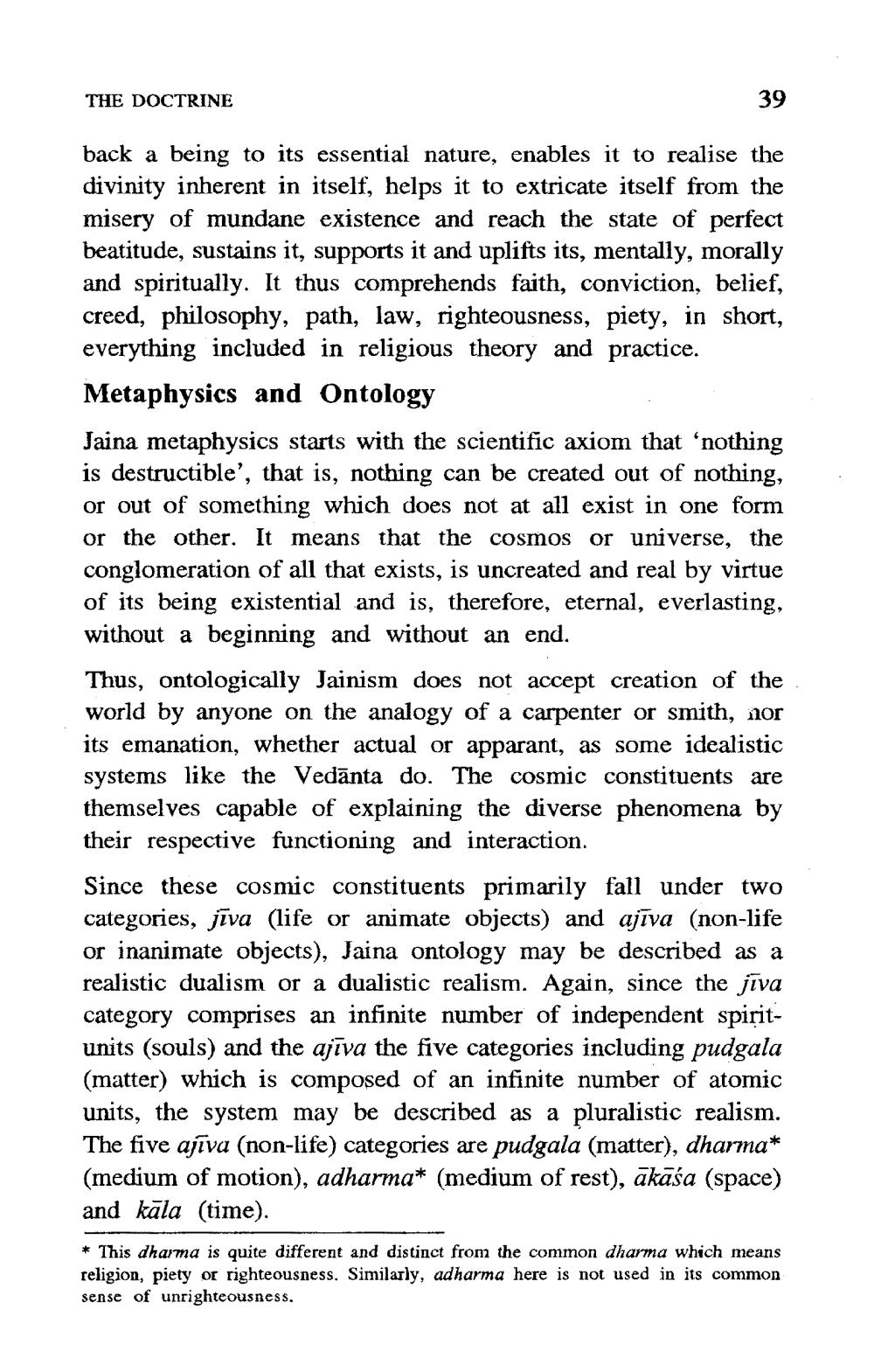________________
THE DOCTRINE
39
back a being to its essential nature, enables it to realise the divinity inherent in itself, helps it to extricate itself from the misery of mundane existence and reach the state of perfect beatitude, sustains it, supports it and uplifts its, mentally, morally and spiritually. It thus comprehends faith, conviction, belief, creed, philosophy, path, law, righteousness, piety, in short, everything included in religious theory and practice. Metaphysics and Ontology Jaina metaphysics starts with the scientific axiom that 'nothing is destructible', that is, nothing can be created out of nothing, or out of something which does not at all exist in one form or the other. It means that the cosmos or universe, the conglomeration of all that exists, is uncreated and real by virtue of its being existential and is, therefore, eternal, everlasting, without a beginning and without an end. Thus, ontologically Jainism does not accept creation of the world by anyone on the analogy of a carpenter or smith, nor its emanation, whether actual or apparant, as some idealistic systems like the Vedānta do. The cosmic constituents are themselves capable of explaining the diverse phenomena by their respective functioning and interaction. Since these cosmic constituents primarily fall under two categories, jīva (life or animate objects) and ajīva (non-life or inanimate objects), Jaina ontology may be described as a realistic dualism or a dualistic realism. Again, since the jīva category comprises an infinite number of independent spiritunits (souls) and the ajīva the five categories including pudgala (matter) which is composed of an infinite number of atomic units, the system may be described as a pluralistic realism. The five ajīva (non-life) categories are pudgala (matter), dharma* (medium of motion), adharma* (medium of rest), ākāśa (space) and kāla (time).
* This dharma is quite different and distinct from the common dharma which means religion, piety or righteousness. Similarly, adharma here is not used in its common sense of unrighteousness.




